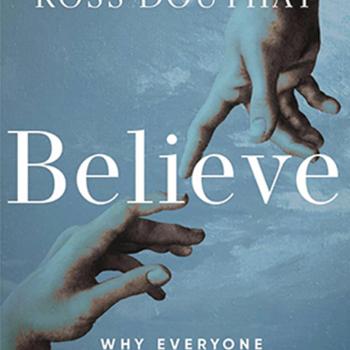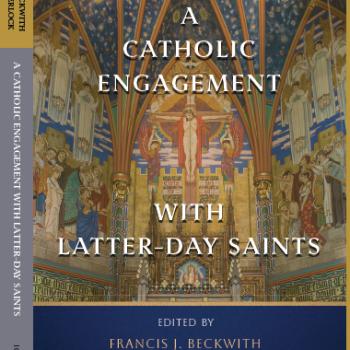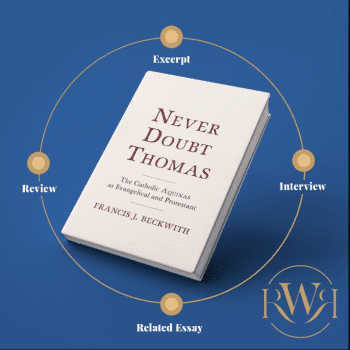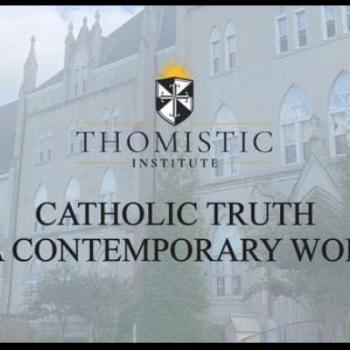On Friday, I published an entry over at The Catholic Thing, to which I linked on this blog. Entitled, “Reformation Day – and What Led Me To Back to Catholicism,” it has, as I expected, inspired some responses by a variety of commentators. What follows are some of my thoughts on those responses.
_____________________________
It is always an honor to have one’s work be the focus so much diverse and interesting opinions.
But given the nature of the topic, there is a tendency in all of us to perhaps not read as carefully as we should. Thus, for example, when I say the Church is logically prior to the Scriptures, some commentators did not seem to take notice that I did not say “chronologically prior.” The reason for this is, of course, intentional: I do not believe, and no one who thinks seriously on this matter really believes, that you had a whole Bible or no Bible (66 or 73) chronologically prior to the Church’s existence. After all, Christ himself quoted from the OT. So, when I say “logically prior” I mean that the Church’s existence is a logically necessary (and chronologically simultaneous) condition for the fixing of the entirety of the biblical canon. Its consummation occurred at the end of an historical process that was organic and not mechanistic.
But it was not the consequence of authoritarian fiat (as it seems some Protestants think Catholics believe) or mere analytic criteria from which the canon had been deduced (as it seems some Catholics think Protestants believe), both of which caricature canonicity. My Protestant friends are indeed correct that canonicity cannot be absent of criteria, and some have eloquently suggested such criteria among these comments. However, just as a verdict in a court of law cannot be achieved absent civil or criminal procedures (the “criteria,” if you will), civil or criminal procedures absent a legitimate and authoritative court cannot produce a verdict either. So, when my Protestant friends write of the Church “recognizing” certain books as Scripture, or that, for example, St. Peter recognized St. Paul’s writings as Scripture, they indeed have made a good point if “the Church” spoken of in the first case has the same or similar authority as the St. Peter cited in the second case. That is, the strength of this reasoning depends on the degree to which “the Church’s” recognition of certain books as Scripture is as authoritative as the Apostle Peter’s recognition of the Apostle Paul’s letters as Scripture. So, if the two authorities are not similarly situated in fixing canonicity, the case is weak. On the other hand, if the two authorities are in fact similarly situated, the case is strong, but in that case the case is Catholic.
I should also note that in the fewer than 1000 words allotted to me for my Catholic Thing entry I was discussing the narrow question of the role and place of Tradition and authority in the fixing of the canon. So, when I share the inner thoughts of my own pilgrimage, I am referring to my reflections on that narrow question and not to the other arguments—e.g., criteria by which the Church recognized books as Scripture—that I accepted as well. This is why the reader must attend to the language I actually use, and not the language he may wish I had used. So, when I write that “I would appeal to the exclusion of these books as canonical by the Jewish Council of Jamnia (A.D. 90-100),” I am not claiming I had once believed that it was at Jamnia that “the OT canon was fixed,” as one commentator carelessly attributed to me. Rather, I am referring to the way in which it is procured as part of the case made for the Protestant canon. (In fact, in my book Return to Rome [p. 123], there is a quote from the book Early Christian Doctrine in which the author, J. N. D. Kelly, points out that the Jewish Palestinian canon—the one recognized at Jamnia—was in fact not the same OT canon that one finds in the Septuagint, the pre-Christian Greek translation of the Hebrew OT, which, according to Kelly, was the version accepted as authoritative by the Church in its “first centuries.” It is from the Septuagint that the Catholic Church derives its OT canon).
In any event, one commentator nevertheless makes the claim that because Jesus had apparently accepted the Palestinian canon, then He fixed it, and who can argue with Jesus? Setting aside the question as to whether one can infer from Christ’s summary statement of the OT as “the law, the prophets and the writings” to the conclusion that he meant the Palestinian canon (especially since well over 75% of Christ’s quotes from the OT are from the Septuagint), the appeal to Jesus to certify OT canonicity relies, ironically, on a Catholic intuition. Let me explain. If the fixing of OT canonicity requires Jesus’ authority, then surely NT canonicity requires that authority (or some historical extension of it) as well, especially since in the latter case we are starting from scratch and in the case of the OT there was already an uncontroversial and identifiable core. So, it seems then that the authority required for NT canonicity is just the sort that the Church understood itself to have when its bishops convened to address pressing theological questions at its most important ecumenical and regional councils, the very councils that resolved, among other things, the conflicts over Arianism, Nestorianism, and Pelagianism. It is an authority that sees itself as the rightful successor of the Apostles, such that it, in the same way that St. Peter acknowledged the scriptural status of St. Paul’s letters, may issue binding judgments on the questions surrounding the scope of the NT canon.
One final word. I neglected to mention in my original entry that the Eastern Churches—both the Orthodox and those rites in full communion with Rome—embrace the 73-book canon, just as the Catholic Church does. Thus, anyone who seeks to challenge the Catholic canon has the unenviable burden of showing that until sometime in the middle of the 16th century, that the Church, both in the East and the West, having the full authority to expel Arius, Nestorius, Pelagius, propose the Nicean Creed as universally binding and normative, and get the NT canon just right, somehow, for a millennium and a half, failed to possess the power to recognize and subsequently exclude seven spurious OT books residing in its most sacred text.












